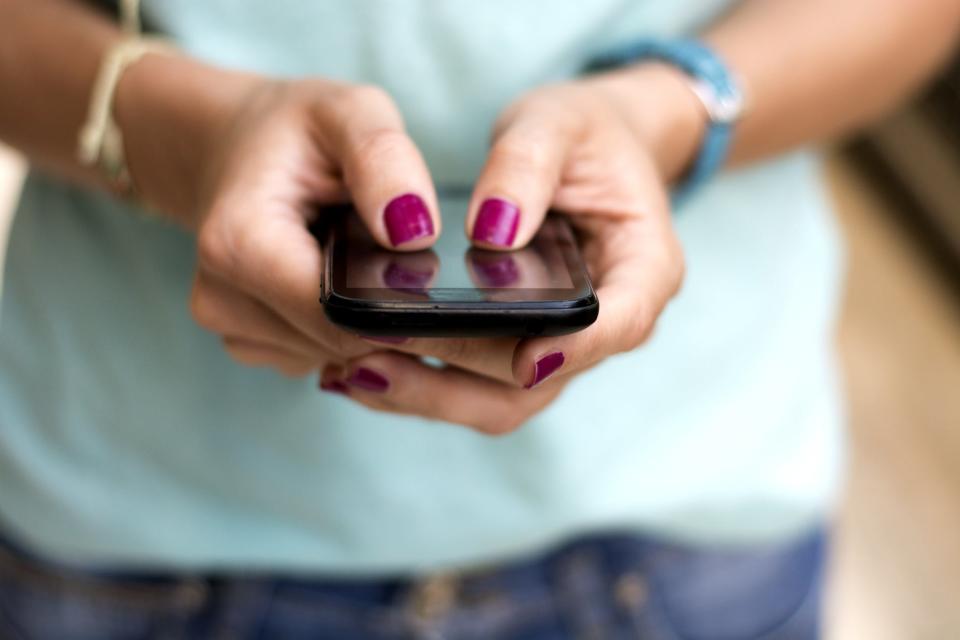How Honest Should You Really Be on Social Media?
From beachfront yoga at sunset to Champagne Boomerangs during “golden hour,” the average Instagram feed delivers a lot of covetable moments. Beauty vloggers show off empty bottles and tubs once filled with skincare products worth more than your monthly grocery bill, while fitstagrammers in fluorescent spandex rock the latest workout trends without ever letting you see them break a sweat. If you had to pick one word to associate with social media, it would be perfection: the perfect angle, the perfect filter, the perfect hashtag. But in response to concerns over feelings of inadequacy among followers, influencers are increasingly offering glimpses of the not-so-perfect reality behind their photos. The question is, will it help?

The power of social media authenticity
“Authentic social media can really even the playing field in a lot of respects,” says Desiree Wiercyski, a life coach for career-focused women. “Suddenly, everyone has a platform to speak their truth, with an audience that’s willing to hear it.” Wiercyski points out that being authentic on social media can be empowering, and can normalize the quirks that make people feel strange or different. Online, one vulnerable post about a habit or a fear might bring together an entire community of like-minded individuals.
Dr. Sal Raichbach, chief of clinical compliance at Ambrosia Treatment Center, notes that presenting yourself more authentically can also benefit your mental health. “Spending time doctoring up a lifestyle that is not true to the one that you have can add unnecessary pressure and stress… potentially leading to more serious complications, such as depression or poor self-confidence,” he says. It’s this sort of stress that led many influencers to begin stripping away the veneer of perfection in the first place.
Choosing where to draw the line
But there’s a fine line between speaking openly and oversharing, and it falls somewhere different for every social media user. “The key is deciding how much you want to share and being okay with whatever people are going to think and say about it,” explains Briana Bogue, staff therapist at the Council for Relationships. In other words, if the thought of posting about how you got over that breakup sends you spiraling back to a negative place, that might not be the right thing for you to share — even if you found a similar post really empowering.
“I recently posted about my personal struggle with body image and self-injury for National Self-Injury Awareness Day,” says Wiercyski. She explains that up until that point, she hadn’t talked about those things on social media. “[I] took back my power by using it to inspire others, versus leaving the topic up for hushed whispers amongst my followers as my scars can be visible in pictures,” she says.
honesty and digital communities
Wiercyski isn’t the first to find power in speaking freely. In 2015, Sammy Nickalls created the hashtag #TalkingAboutIt on social media to encourage a more open conversation about mental health issues. Nickalls is one of many inspiring millennial women and femmes reinventing the conversation on mental health online. Engaging with a digital community like #TalkingAboutIt requires a leap of faith: You’re posting something honest and vulnerable that’s likely to be seen by people you know. But in return, you’ll gain the opportunity to connect with social media users who understand what you’re going through and want to offer their support. This kind of support network can be incredibly valuable when your mental health is suffering.
Engaging in mental health or recovery discussions online does come with some risk, however: “If someone else is posting about their struggles, there’s a higher likelihood of being triggered,” says Wiercyski. Since you can’t always anticipate how others will react to your posts, there’s also a chance of being triggered by comments — or even by an absence of engagement. “There is no need to put all of yourself out there to be judged by other social media users,” says Raichbach. “Doing so can absolutely trigger personal issues, such as being rejected, bullied, or abused.”
And Bogue points out that it’s also possible for mental health advocates to unintentionally trigger others. “You may want to be prepared to engage with them in a conversation about how you offended them,” she says. “You could learn something or change your views.” This is especially important in the context of bigger conversations, like the ones going on around Instagram and body positivity.
Staying true to yourself
Although honest social media posts might seem more “real” than, say, the aspirational breakfast bowls from far-flung wellness retreats, it’s still important not to compare yourself to others on your feed.
Wiercyski points out that when influencers open up about their struggles while still maintaining a highly curated page, it’s easy to feel like you don’t quite stack up. “There may be the idea of, ‘Well, they’re dealing with that and doing all these other great things, but I can barely manage this one thing,'” she says.
Remember that even honest social media posts are crafted for public consumption. Online, everyone has a persona. There’s no pressure make yours more honest — or more perfect — than you want to be.
Have you felt empowered by social media honesty? Tell us about it @BritandCo!
(Photo via Getty)


